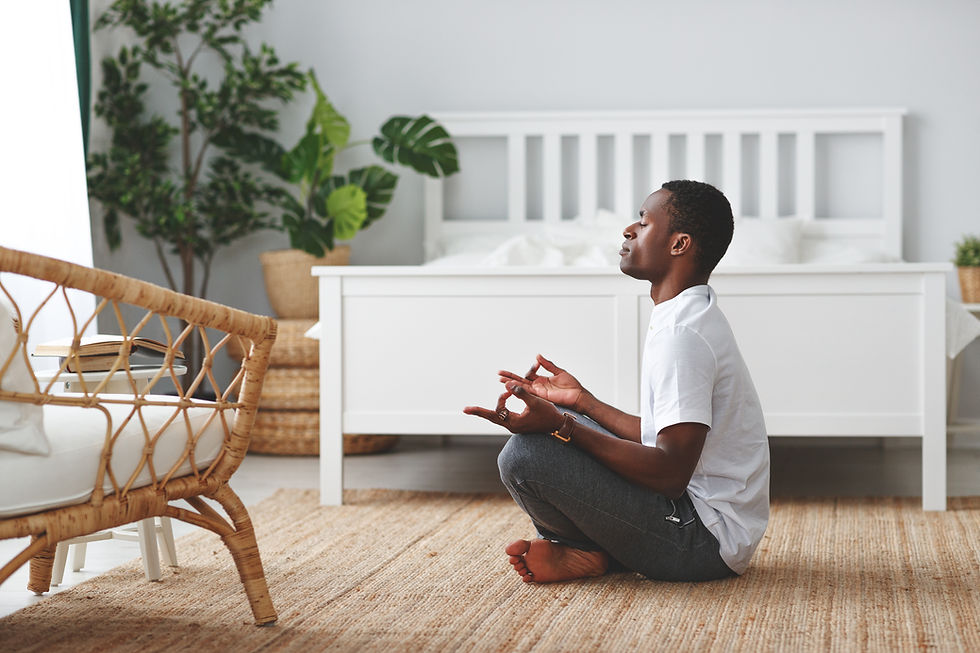Is Mindfulness the Same as Mindlessness?
- Naomi Hurst

- Oct 16, 2025
- 2 min read
When a client recently asked me if mindfulness is the same as mindlessness, I had to pause. At first, the word “mindlessness” made me think of an empty, vacant mind, almost a void. But that’s not what mindfulness is about. In fact, it’s quite the opposite.
Mindfulness is not asking us to shut off or erase our thoughts. Instead, it’s about paying attention with awareness, to notice the present moment without judgment.

And while I’m now fortunate to sometimes touch that quiet, balanced state where the mind feels calm and spacious, the truth is: mindfulness doesn’t require a totally silent mind. Thoughts still come and go; mindfulness is about how we relate to them.
Mindlessness often looks like being distracted or running on autopilot. For example, driving a familiar route and barely remembering the journey, or reaching for snacks without realising you’ve finished the packet.
Mindfulness is the opposite: it’s about being present for what’s happening right now. That could mean noticing the taste of your food, really listening in a conversation, or being aware of your breath as it moves through the body.
Although mindfulness has roots in ancient contemplative traditions, in the modern world it is widely used as a psychological and therapeutic tool. It doesn’t require any spiritual belief system and it is not religious.
In fact, research has shown that mindfulness can support both mental and physical health:
Stress reduction: Mindfulness-Based Stress Reduction (MBSR), developed by Jon Kabat-Zinn in the late 1970s, has been shown in hundreds of studies to reduce stress and improve resilience.
Anxiety and depression: Mindfulness-Based Cognitive Therapy (MBCT) is now recommended by the UK’s NICE guidelines for preventing relapse in recurrent depression.
Physical health: Research suggests mindfulness can lower blood pressure, reduce pain perception, and even influence immune function.
Think of it as the gym for the brain: just like exercise strengthens the body, mindfulness strengthens awareness, focus, and emotional regulation.
You don’t need long retreats or hours of practice to feel the benefits. Even a few minutes a day can make a difference. Common benefits people notice include:
• A calmer mind in stressful moments
• Better sleep quality
• Increased focus and productivity
• Greater emotional balance
• More enjoyment in daily activities
As much as I value mindfulness, it’s important to say: it isn’t for everyone. And that’s perfectly okay.
Some people find it uncomfortable or even distressing to sit quietly with their thoughts and body sensations. This is especially true for those who have experienced trauma, who live with certain mental health conditions (like PTSD or severe depression), or who may feel heightened anxiety when tuning into the body.
For these individuals, other practices, such as mindful movement, grounding techniques, or creative outlets, may feel more supportive and safer.
There’s no single path to wellbeing. Mindfulness is simply one tool in a wider toolkit.
So no: mindfulness is not mindlessness. It’s not about emptying your mind or escaping reality. It’s about meeting life more fully, with awareness and compassion.
And if it doesn’t feel right for you? That’s okay too. There are many other practices that can help you feel grounded, present, and connected. The real work is finding the approach that best supports your unique journey.
Naomi Hurst






Comments